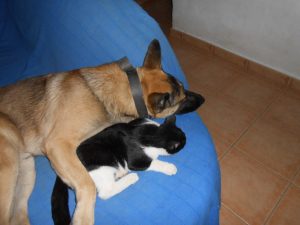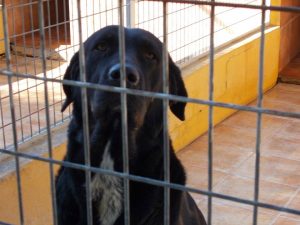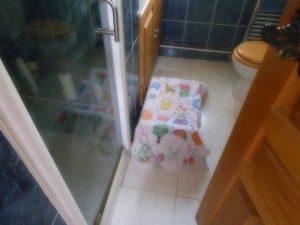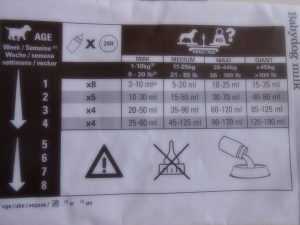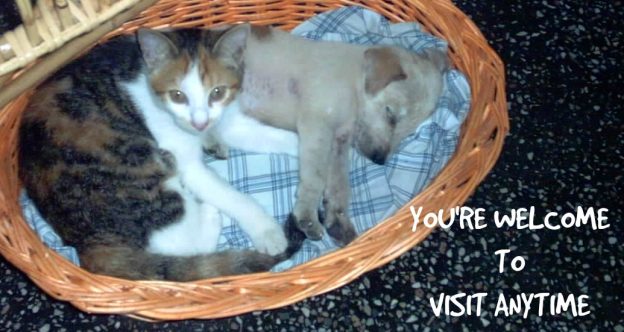Dogs, the mother of all emergencies.
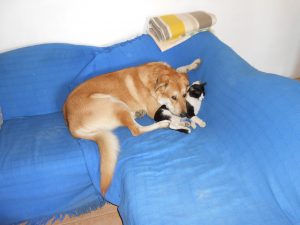
An ordinary Friday evening up the hill. Settled down to watch a film, Sommersby. Can recommend this one, with a great twist. All the dogs sleeping in their usual places. Went to bed around eleven-thirty and within minutes, felt myself dozing off.
We only have a small house, and the dogs separate themselves into various rooms and places for the night. However, through the night, they have a swap around causing a bit of commotion now and again. Friday was no different. Bonnie, was moaning and we´d only been in bed half-an-hour.
“Will you stop. No one´s anywhere near you,” I called out. Eventually I got up and let her out of the door. Then she proceeded to bark. Up again, to let her back in. Then she moans again. Repeat previous routine, meanwhile, hubby sleeps soundly.
Get back into bed and settle down again. By now it´s 1 o´clock. Arnie, in his usual spot next to me, begins to growl.
“Will you stop. For goodness sake, I only want to sleep!” The growling continued, so I put on the light.
Dexter, my biggest dog, weighing in at 43kilos, is sitting looking at me, his nose an inch from my face. “Dex, what´s the matter, they´re just being silly, go and lie down.” He walks to the door and looks at me. “Do you want to go out?” I let him out. Bonnie goes out with him. Now it´s 1:30. Get back into bed. Bonnie moans and whines, then barks. Up again. “Get in here! Oh, who´s been sick?” There is white froth in several places on the terrace. Bonnie and Dexter wander back into the house while I get the mop bucket.
As I walked back indoors, Dexter, has been sick, more white froth, and he´s standing in it, very still. “What´s the matter?” I stroked him, but he stands like a statue. I called through to my husband. “Dexter´s ill.”
“Right,” he mumbles back.
“Seriously, he´s ill.” Tim leaps out of bed, we stand and look at Dex, who takes a couple of steps and then lies on the floor.
As we watch, his stomach starts to swell. It´s hard to touch. I switch on the computer and google, ´dog bloated stomach´. I scan the page, ´if not treated, death´.
Mad rush to pull on clothes, ring vet, no answer. Manage to get Dexter out to the car and lift him into the back. By now, he is lethargic, stomach massive and his breathing slow. The only 24-hour vet, is 45 minutes away.
Tried ringing vet again, but still no answer. Pull up outside closed gates and ring the emergency bell. Nothing. Try again and again. The automatic gate slowly opens and we drive in.
A young vet comes out to the back of the car. Dexter looks like he´s already left us. She runs back into the clinic and returns a moment later with a needle that has a plastic cone on the end. She jabs it into his side, and smelly gas hisses out.
Eventually the gas stops and we lift him into the clinic. He´s barely breathing and not responding. The vet, who we later learned is called Amanda, inserts a drip, and goes to make a phone call.
She returns, gives him an injection and adds pain relief to the drip. She says they will operate as soon as he is a bit stronger. His heart rate quickens and although, he´s still out of it, there is some response.
We help her put him in a kennel, say goodbye, and leave him. He is oblivious!
By now it is 4 o´clock. Amanda had told us that the stomach/intestines twist and separate. There is not a definite reason for this to happen.
We got home and searched the internet.
The illness is called Gastric Dilation and Volvulus (GDV). GDV happens when gas or food stretch the stomach. When the distended stomach rotates, the gas is trapped and blocks the stomach´s blood supply.
Main causes:
- Dogs over 45kg or 99lbs (20% chance of bloat in these large dogs. Great Danes, St Bernard, and Weimaraner are at great risk due to their deep chests).
- Dogs aged between 7 and 12
- Dogs who are fed only once a day
- Dogs who are fed and then take exercise
- A family history of the condition
- Eating too quickly
Dexter is deep chested and within the weight category.
Smaller dogs can get this too, but it is rarer.
The vet who operated called me at 5:30. Half the stomach wall was black, but returning to pink as the operation finalised. The next 48 hours were crucial.
At least, he had made it through the op!
We´ve been visiting now for two days and he is so poorly. The vet, Ana, who had operated, did tests and found his kidney´s weren´t working properly. He also has an infection.
We´re keeping everything crossed that he pulls through.
I´ll update as soon as there is more news, but just wanted to post this so other dog owners can be aware.
Don´t try and diagnose the condition yourself. If your dog´s stomach starts to bloat – get him to a vet. A dog can die in a really short space of time with this illness.
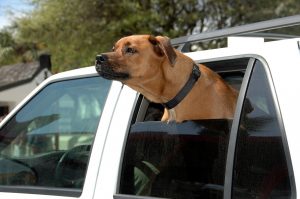

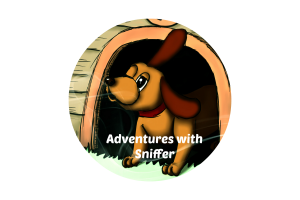
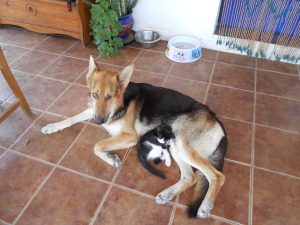 tell ourselves they´re not suffering; they´re in a better place, they are at peace, but in reality it´s a ploy to try and make us feel better.
tell ourselves they´re not suffering; they´re in a better place, they are at peace, but in reality it´s a ploy to try and make us feel better.